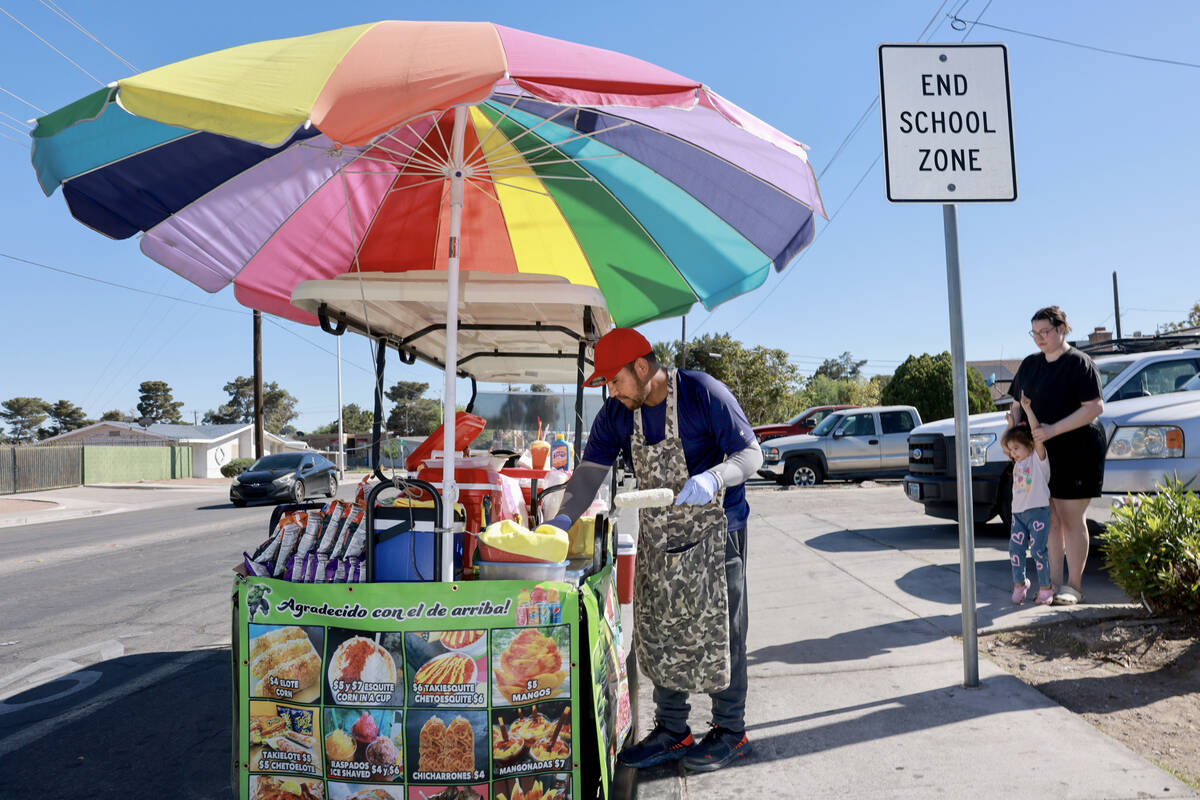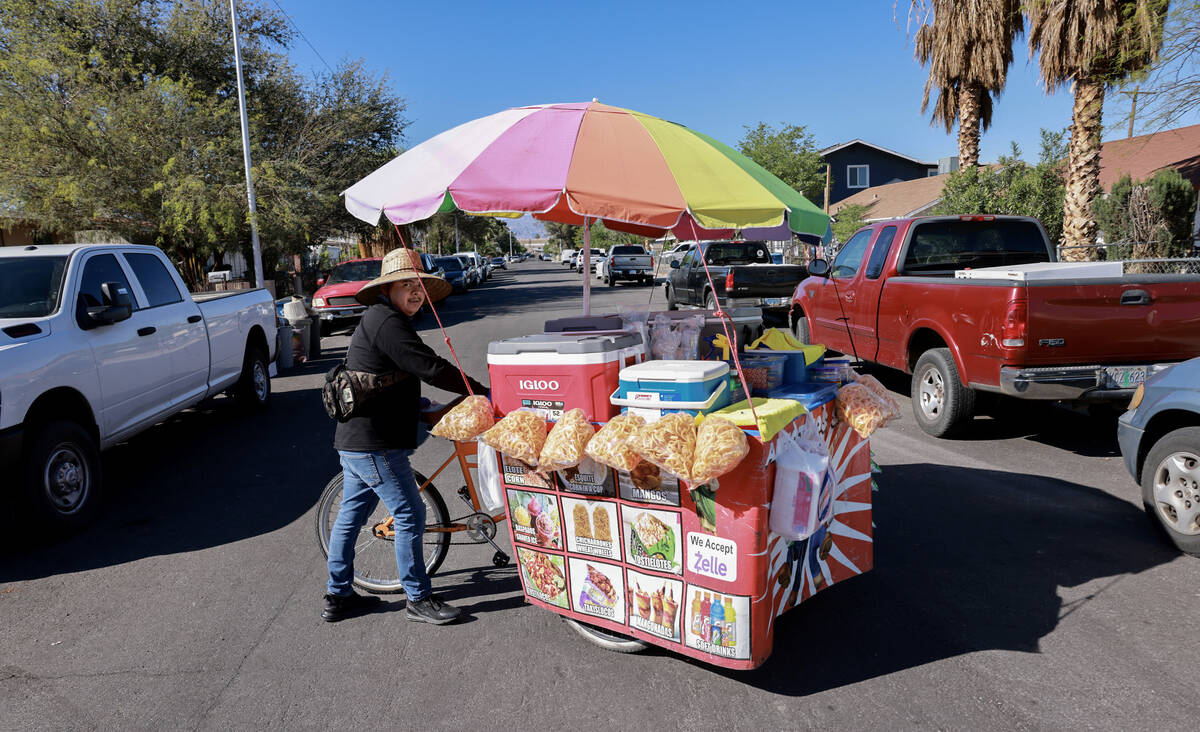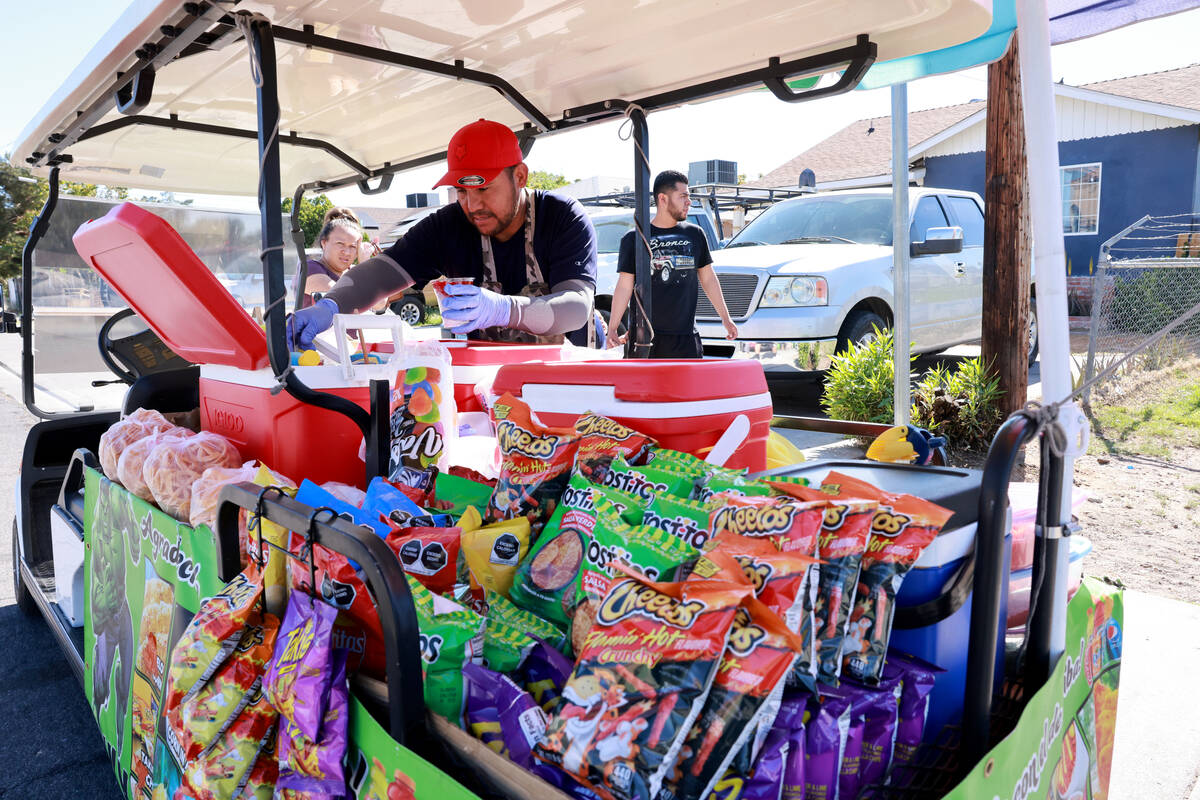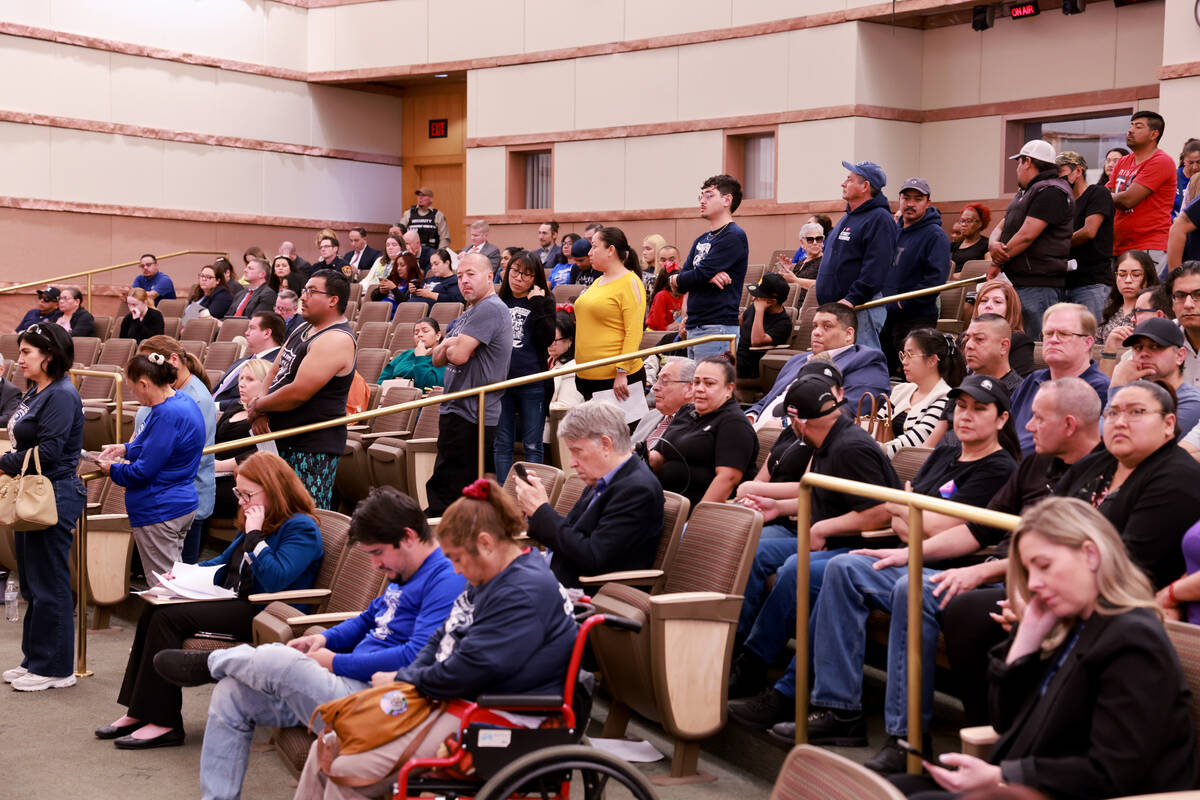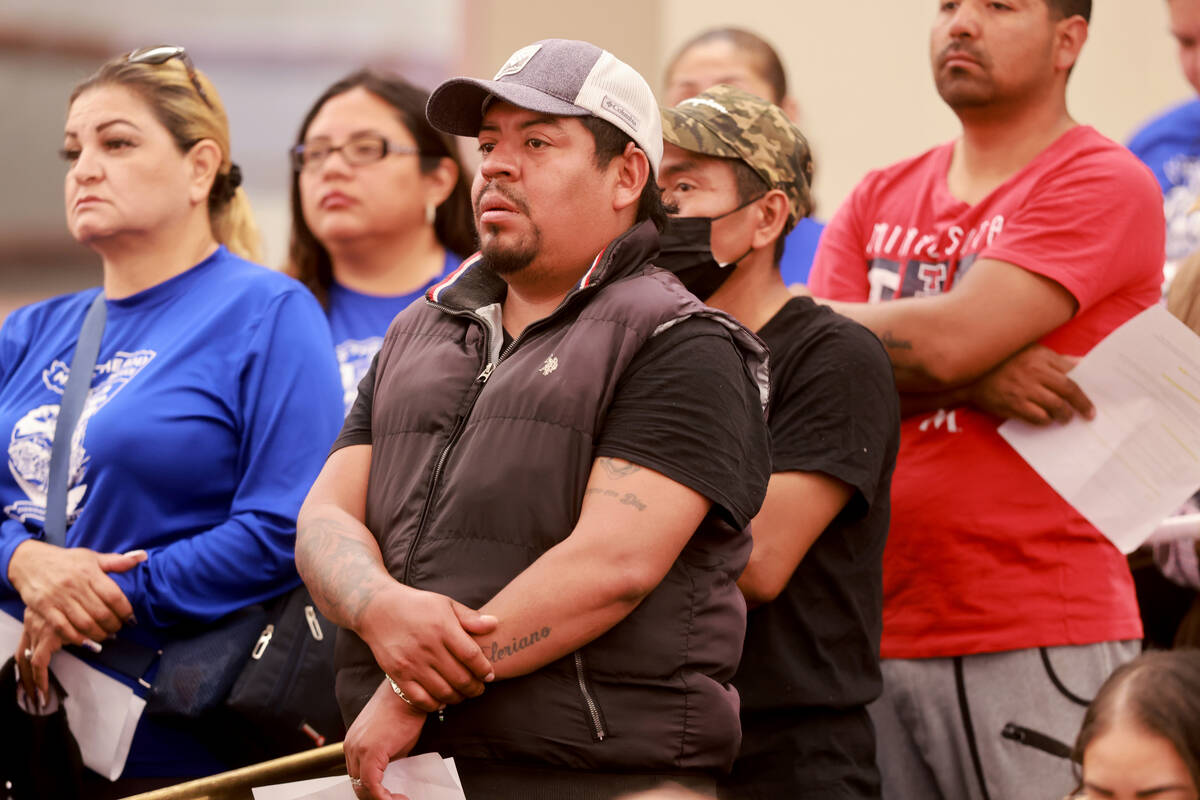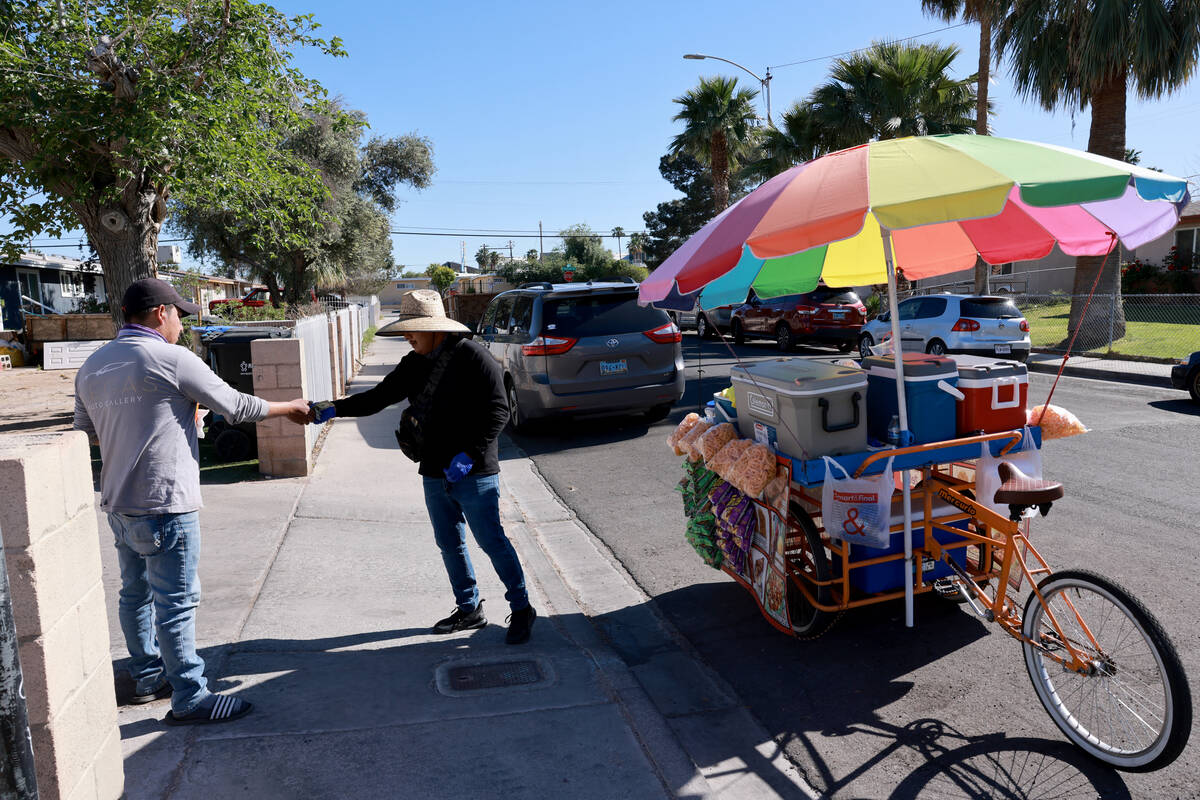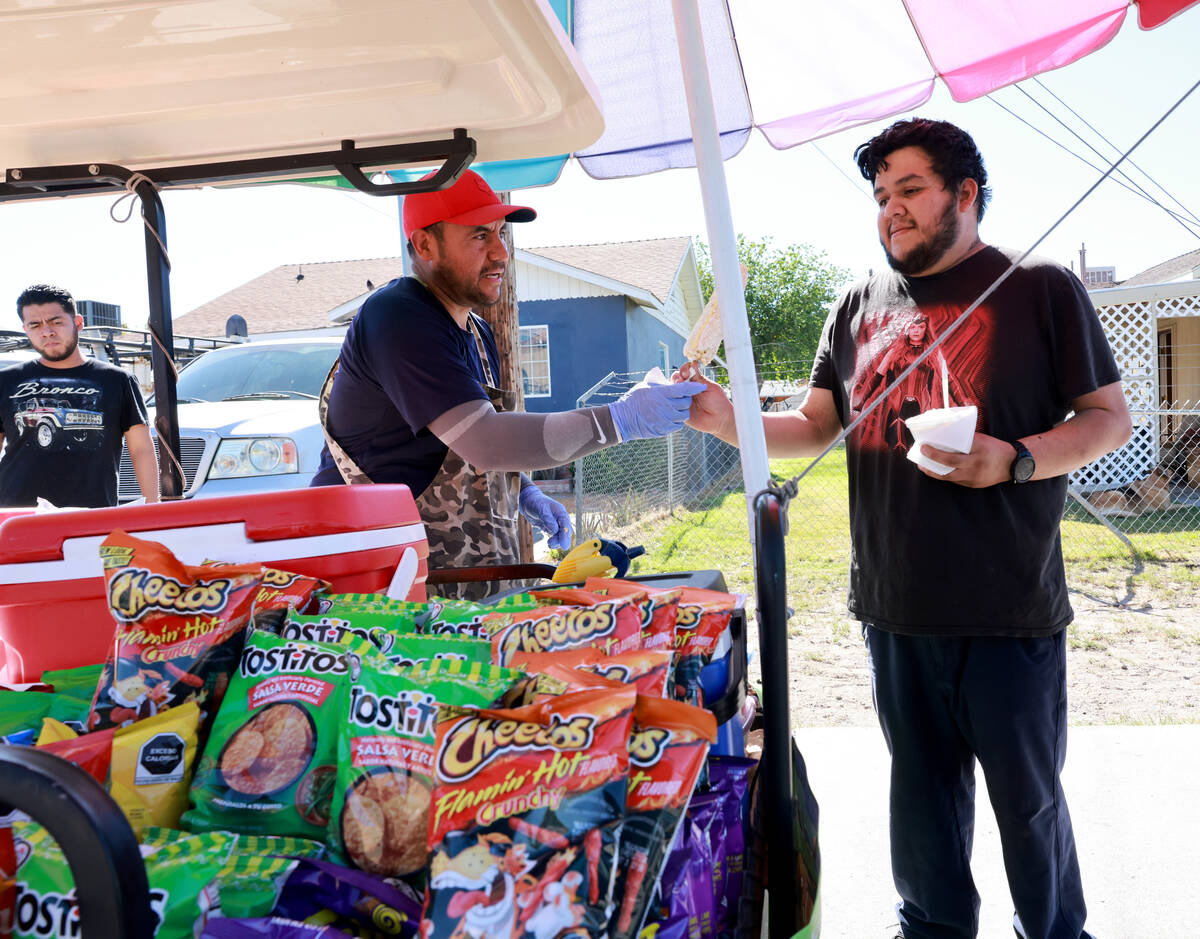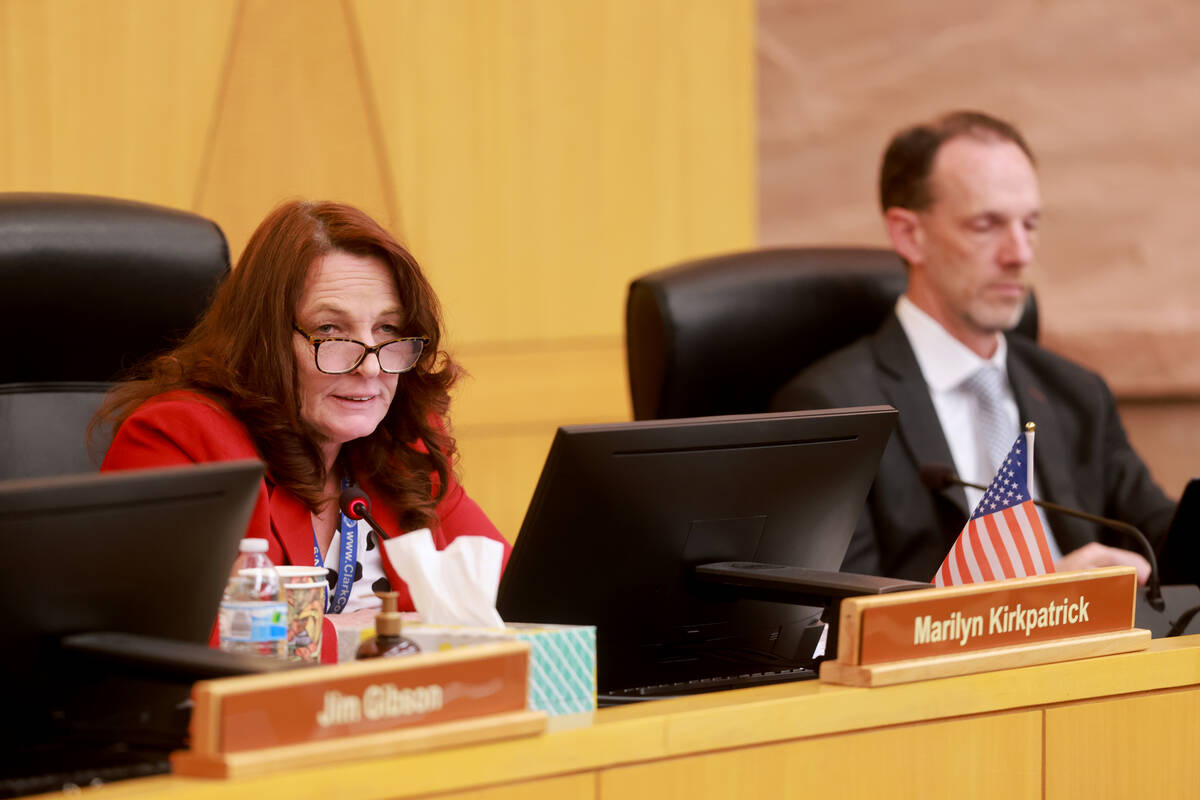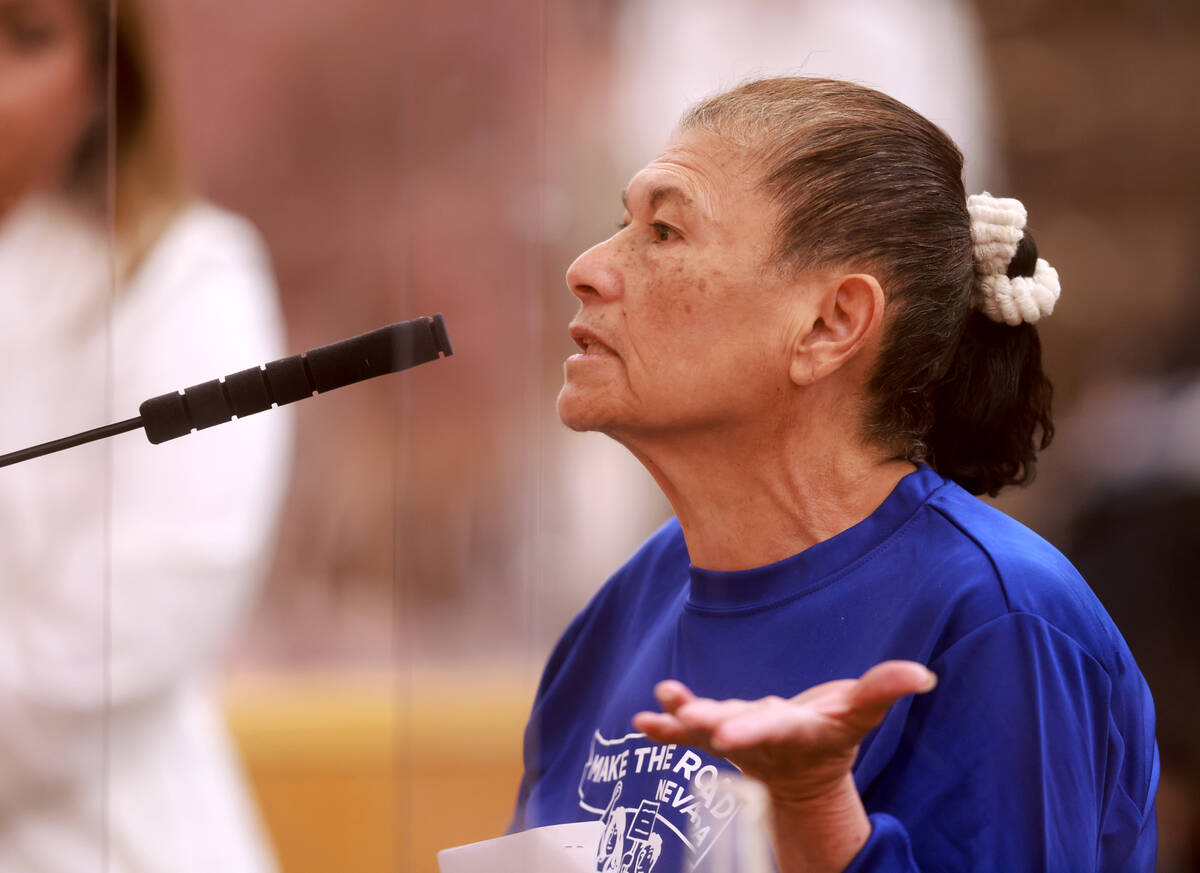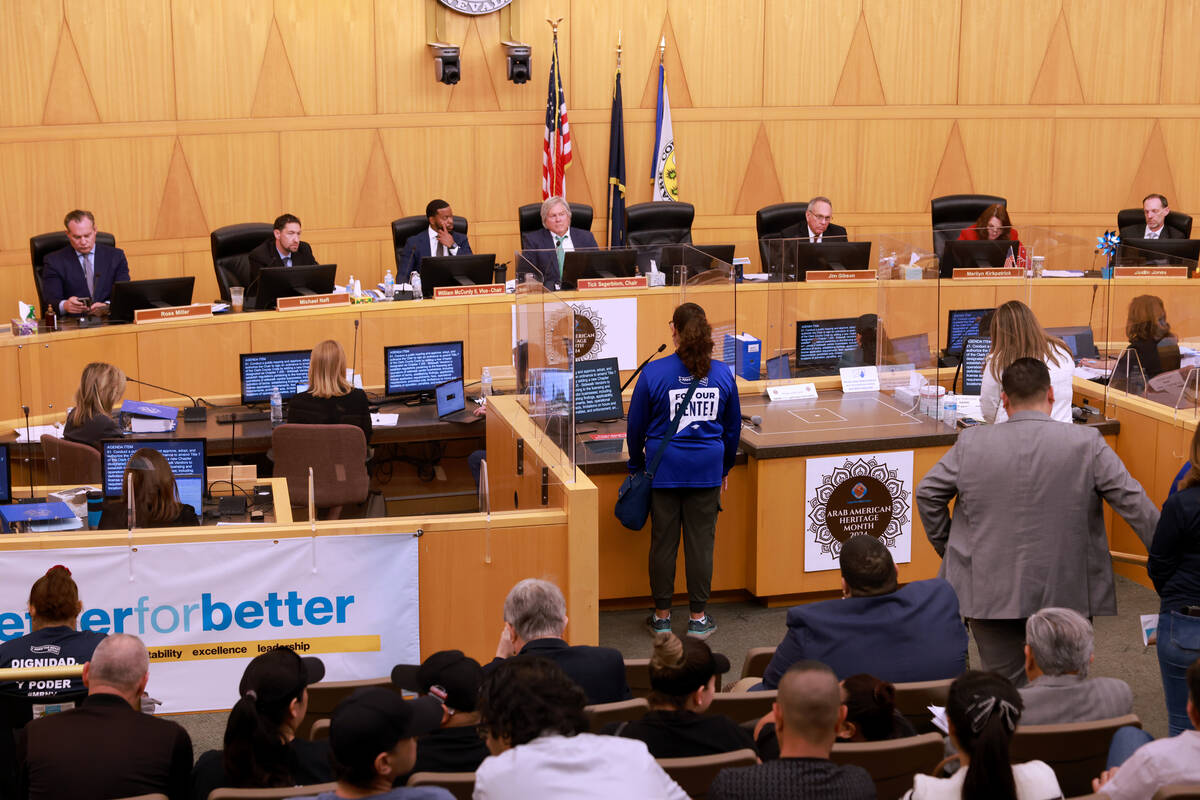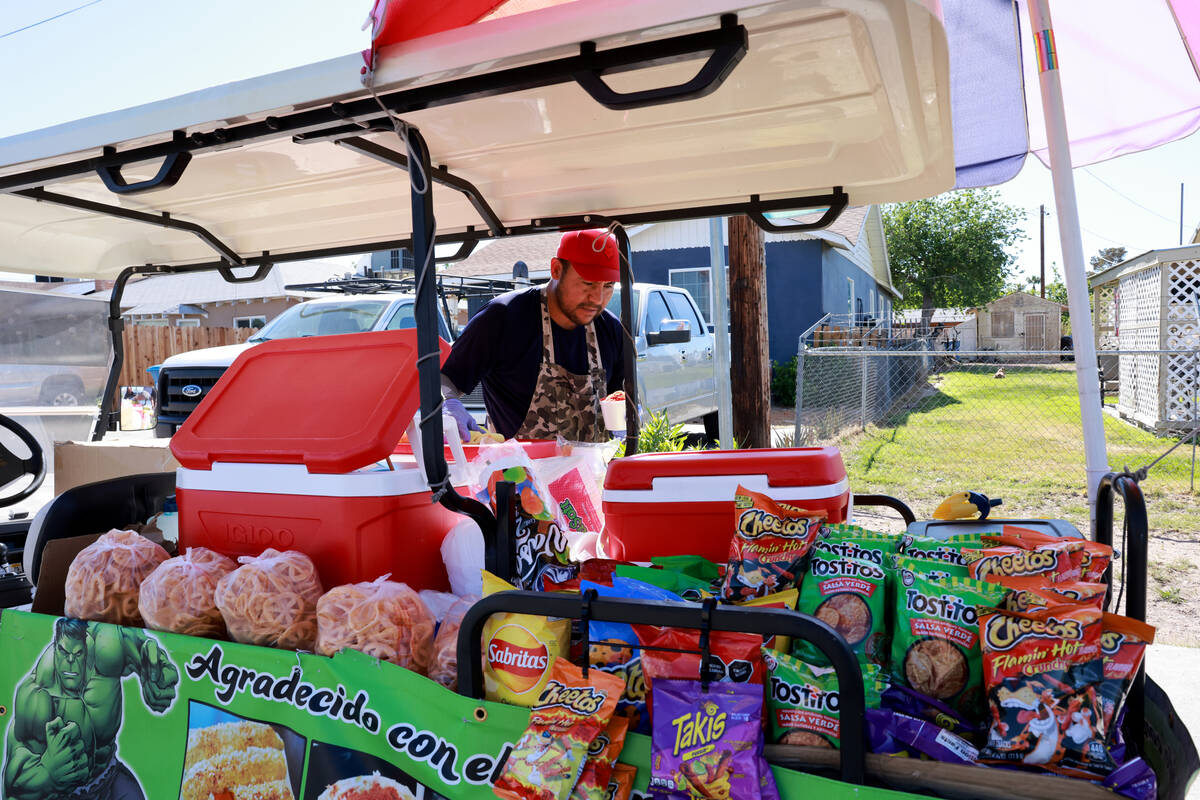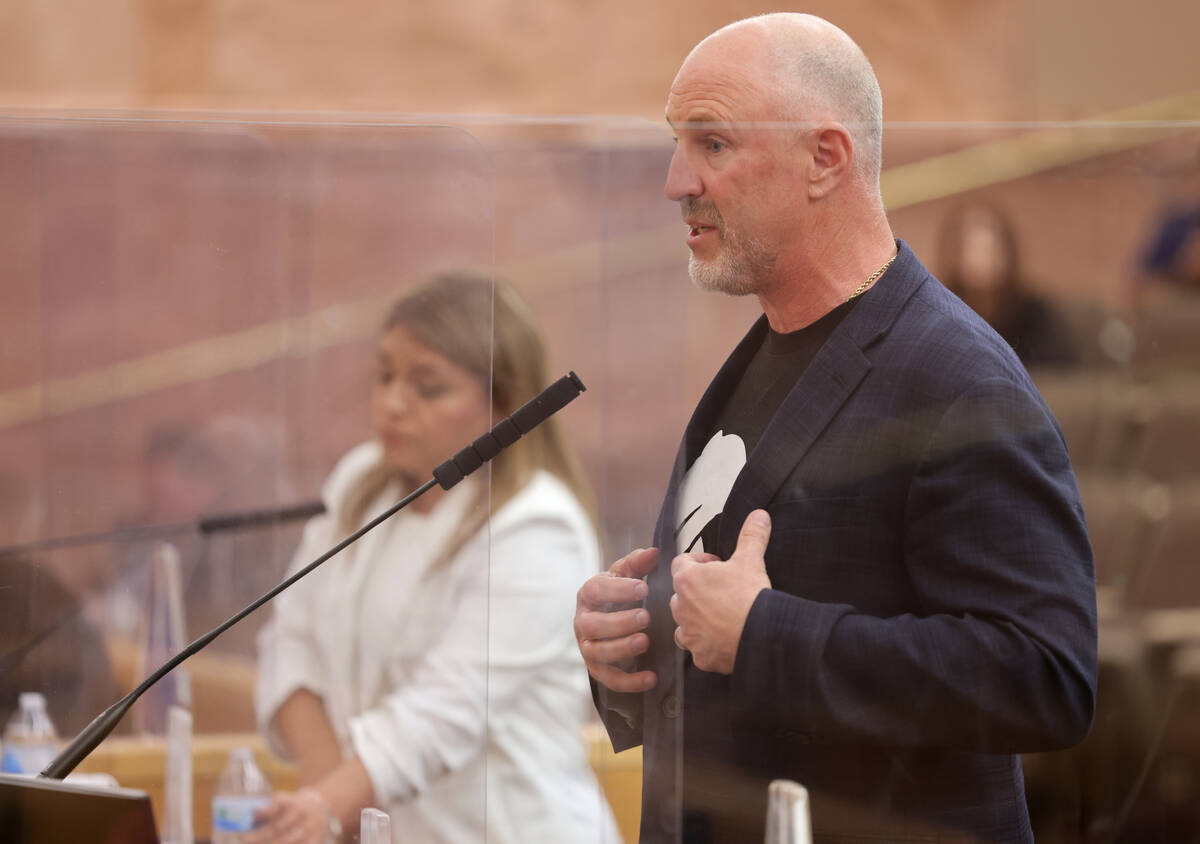Sidewalk food vendors hit with strict rules in Las Vegas Valley
Sidewalk vendors can now obtain licenses to legally operate in certain parts of the Las Vegas Valley, albeit with strict restrictions.
The new law, passed unanimously by county commissioners Tuesday, lays out licensing requirements and regulations for street food vendors.
“This is the biggest thing we’ve done in my five years here,” Commission Chair Tick Segerblom told the audience following the vote. He also apologized that some were unhappy but said the commissioners are “always listening and keep working with us.”
The county ordinance would require sidewalk vendors to obtain a license and pay an annual fee of $150, hold a permit with the health district and maintain an insurance policy.
Comments from the community
A hearing on the ordinance drew nearly two hours of public comment, the majority in Spanish.
Street vendors and advocates raised concerns about a provision in the law prohibiting street vendors from operating within 500 feet of county parks and schools, arguing the restriction would severely limit where the vendors can safely operate.
Eduardo Moreno, a street vendor who has been operating in Nevada for 10 years, asked commissioners to remove the restrictions around parks and schools.
“I ask if you can please remove the restrictions from the parks and schools to make those restrictions zero,” Moreno told commissioners in Spanish. “I’ve been assaulted four times. I got robbed, and I can tell you that it’s very dangerous to sell juice on the streets.”
But some business groups said that a requirement limiting vendors’ operations outside of 150 feet of licensed food establishments should be extended to at least 500 feet or more, arguing that the street vendors have already harmed restaurants’ businesses.
David Brown, who represents a group that operates 70 fast food establishments in the county, said the group agrees with street vendors’ arguments about operating near schools and parks but thinks the distance requirement from restaurants should be 500 feet, not 150 feet.
“To let someone who doesn’t have to pay the same expenses or go through the same protocols as the fast-food establishments, that distance just seems too short,” he said.
Restrictions
The law restricts where vendors can operate and prohibits them from operating between 9 p.m. and 8 a.m., with certain exceptions.
Vendors also are banned from operating within 500 feet of certain permitted events, schools while they are in session, and any county recreational facility, community center or park.
They are also banned from operating within 150 feet of other sidewalk vendors and licensed food establishments during its operating hours, among other locations.
Vendors are prohibited from operating within 15 feet of street intersections, public restrooms, bus stops, crosswalks and other locations.
An October ordinance banned street vendors from operating within 1,500 feet of a resort hotel or near a facility that can seat at least 20,000 people.
The ordinance also limits a sidewalk vendor’s operation to 25 square feet and to just one stand or cart. It also prohibits vendors from selling nonfood items, alcoholic beverages, tobacco products, cannabis products and weapons.
Individuals who violate the law could face a civil penalty of up to $500 for each violation. If the law is violated outside of a residential zone, the individual could be found guilty of a misdemeanor, which can result in six months in jail, a $500 fine, or both.
Under the law, law enforcement and business license employees may destroy food being sold by sidewalk vendors who do not possess a valid permit issued by the health district.
The ordinance, which was introduced during the county commission’s meeting on April 2, brings the county in line with state law.
Clark County Business License is working with local jurisdictions to create a multijurisdictional license for sidewalk vendors.
The ordinance will go into effect in two weeks.
Reaction
In a press conference after the vote, state Sen. Fabian Doñate, D-Las Vegas, — who was the primary sponsor of the state bill — said the passage of the ordinance was “bittersweet.”
“While we can acknowledge a step forward in the process — allowing our vendors to be legalized, a milestone that recognizes the legitimacy of street food vending as a valuable economic activity — we must also confront a harsh truth,” he said. “That harsh truth is that there are still a lot of unknowns, including what will result from the distance requirements that were passed today in the ordinance by the Clark County Commission.”
Doñate said commissioners seemed open to revisiting the ordinance but said if efforts fall short, “we’ll take the fight to the Legislature.”
The state senator also called on the Southern Nevada Health District, which is in charge of issuing health permits to the vendors, “to do their job” and to work with street vendors.
Contact Taylor R. Avery at TAvery@reviewjournal.com. Follow @travery98 on X.



